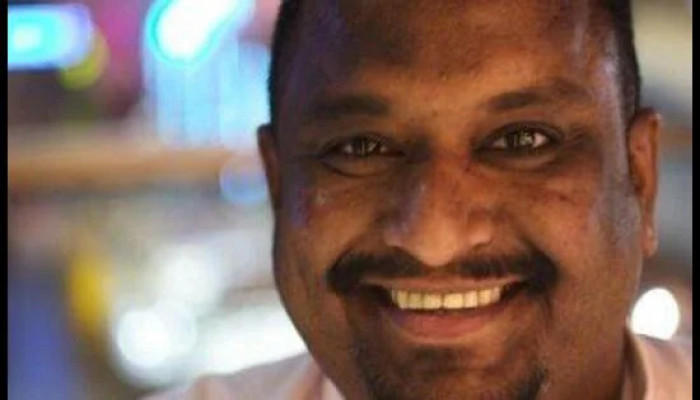Congress’s AIPC sets up LGBTQIA+ vertical, appoints Mario da Penha as its chief
- In Reports
- 10:00 PM, Sep 04, 2024
- Myind Staff
The All India Professionals’ Congress (AIPC) announced on Wednesday that queer activist and historian Mario da Penha has been appointed as the national head of its newly established LGBTQIA+ division. This move makes the Congress the first national party to create a dedicated unit representing the lesbian, gay, bisexual, transgender, queer, intersex, and asexual (LGBTQIA+) community.
Praveen Chakravarty, the head of AIPC, stated that the Congress aims to achieve not only social justice but also identity justice.
“The message that Congress wants to send is that we want to ensure complete political representation for queer individuals unlike the BJP government who has taken away their rights with the most recent example being the National Medical Commission’s restoration of the outdated curriculum which villainises the queer community,” he said.
Penha mentioned that establishing the LGBTQIA+ division at a national level aligns with the party's "ongoing efforts to restructure with an emphasis on greater social inclusivity."
Last week, the Congress conducted a reshuffle that included a significant number of leaders from backward classes, Scheduled Castes, and Scheduled Tribes. Over 50% of the 74 secretaries and joint secretaries are from OBC, SC, and ST backgrounds. Additionally, 12 Muslims and Christians have been appointed, making up 16% of these positions.
“This is the moment of shift for Congress. The Congress has not been wishy-washy about the terminology and has just gone and called it the LGBTQIA+ verticals. There’s no hiding behind a more palatable term. This is the structural change that the Congress has envisioned and the leadership knows it starts from within.”
Penha noted that while the Nationalist Congress Party (NCP) established an LGBT cell in 2020, the Congress is leading the way among national parties by creating a dedicated framework for LGBTQIA+ inclusion.
“Currently, we are the only recognised national party that has some kind of framework for inclusion of queer people in its membership,” he said.
The creation of the LGBTQIA+ vertical aligns with the Congress’s 2024 general election manifesto, which promised to introduce a law legalising civil unions for LGBTQ+ couples, a long-standing demand of the community.
“The formation of the vertical proves that Congress’ vision for the community is not limited towards securing a vote bank but also actually working for realising the goals of the manifesto,” said Penha.
He began his journey as a queer activist in the 1990s while studying at St. Xavier’s College in Mumbai, a role he continued during his time at Jawaharlal Nehru University (JNU) in Delhi, and has since extended to include crisis intervention for individuals facing violence.
“I will bring with me the experience that also includes approaching first the Delhi High Court, and then the Supreme Court on the Section 377 and marriage equality cases,” he said.
Penha, who was appointed AIPC’s Maharashtra coordinator for LGBTQIA affairs in 2022, said that the measures taken by the Bharatiya Janata Party government seemed to be reactive rather than proactive.
For example, he argued that allowing joint bank accounts for queer couples does not offer any new protections and questioned its practical effectiveness.
“Queer people have been going to banks and opening joint accounts with their partners, even before this circular came out,” he said. He also highlighted concerns about the circular on ration cards for the community, questioning how the government plans to define and recognise “queer couples” without a legal framework for marriage or civil partnerships.
Penha also criticised the National Medical Commission’s announcement on Tuesday to reintroduce ‘sodomy and lesbianism’ as unnatural sexual offences in the forensic medicine and toxicology curriculum for undergraduate medical students. He described the decision to bring back outdated and negative terminology as a setback for medical education and LGBTQIA+ acceptance.
“Who uses these words in 2024?” he questioned saying that it shows the disconnect of the government from the contemporary understanding of LGBTQIA+ issues.
Da Penha also highlighted the importance of intersectionality in LGBTQIA+ advocacy, recognising the unique challenges faced by marginalised groups within the queer community, such as Dalit and Muslim queer individuals.
He emphasised that the Congress is not a party that will remain silent on queer issues, commending the party’s openness and willingness to engage with queer communities.
“I was part of the manifesto consultations for the general election,” he said, recalling that he worked with 16 queer organisations to present their suggestions to the manifesto committee, which included prominent party members such as Congress general secretary Jairam Ramesh and Congress MP Shashi Tharoor. This engagement led to the inclusion of support for civil unions in the Congress manifesto, reflecting a commitment to LGBTQIA+ rights that Penha insists are more than just “symbolic.”
Image source: X







Comments